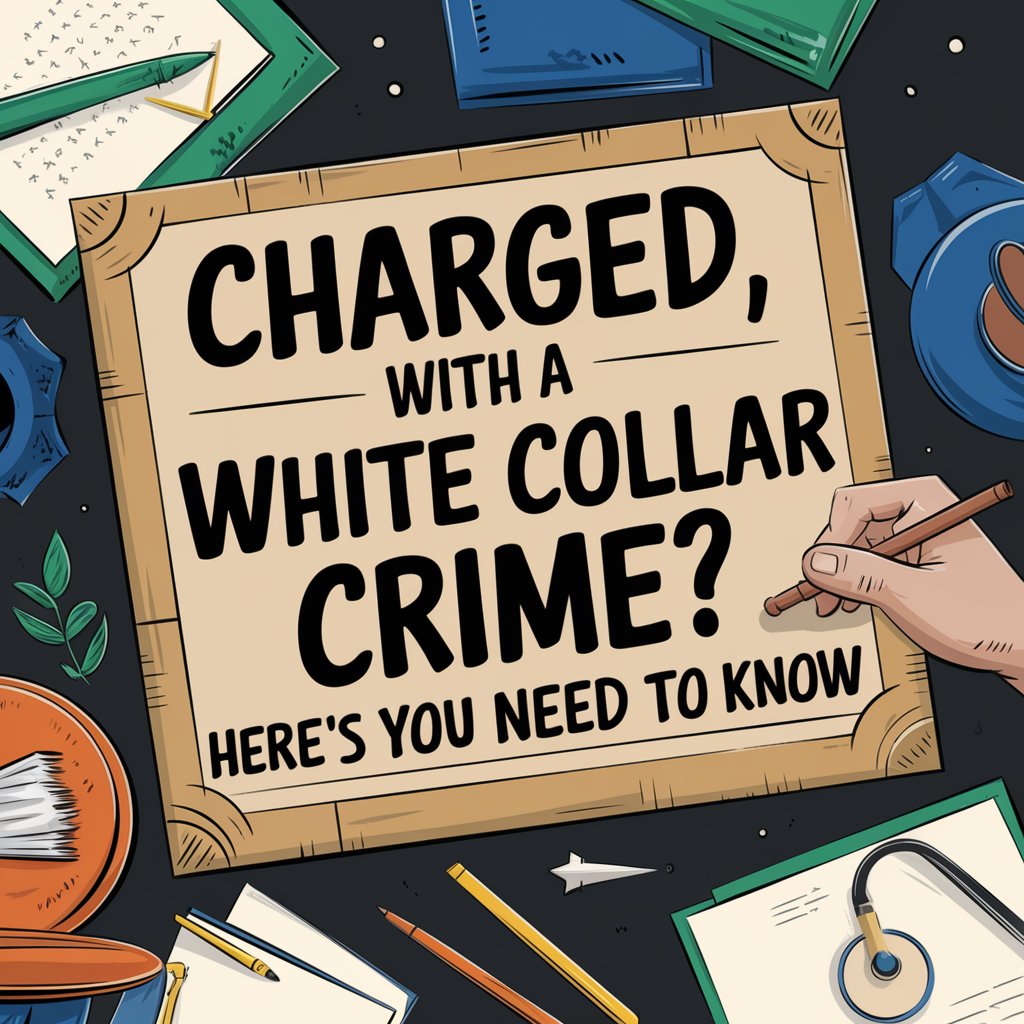How to Manage Being Charged With a White Collar Crime
Being charged with any crime is a life-altering experience, but white collar crimes can be especially difficult in terms of public scrutiny and reputational damage. White collar crimes, like embezzlement, tax fraud, or insider trading, can diminish trust and prevent you from working in certain industries.
Understanding the nuances of your charges, the legal process, and your rights is crucial for navigating your situation. Here’s what you need to know to get an optimal case outcome.
1. Understand your charges
Whether you’re being charged with embezzlement, securities fraud, tax evasion, identity theft, or any other crime, it’s crucial to understand the severity and details of the charges being brought against you. You need to understand the potential fines and jail time, as well as implications for your future.
Instead of searching online for answers, talk to your attorney about your charges and how a conviction might impact your life. Your lawyer is more qualified to explain your situation than Google.
2. You need a lawyer
Getting a favorable case outcome without a lawyer is unlikely, especially when you’re being charged by a federal agency. The prosecution will do everything in their power to convict you while handing out the maximum allowable sentence and fines. A white collar defense attorney is your best chance to either beat your charges or get a deal that reduces the penalties.
No matter how good you are at negotiating, you still need legal knowledge to effectively build your case. Only a defense attorney with experience handling white collar cases will know the financial laws and regulations required to present a solid defense. If you hire an attorney early enough, they’ll help you navigate the investigation phase before charges are filed. They’ll also advise you on how to interact with police, help you negotiate a plea deal, and guide you through your court appearances.
Hiring an attorney is a crucial first step, but it’s equally important to be honest with your attorney. Being dishonest or withholding information will only make their job harder. For instance, white collar cases usually involve intricate financial transactions and large quantities of documentation that a forensic accountant will analyze with a fine-toothed comb. If there’s something you did that will be found in the paper trail, it will come out, and your attorney needs to know.
3. Exercise your rights
Don’t give up your rights for any reason, even if you are innocent and believe there’s no evidence against you. Once you give up your rights, there’s no going back.
Never do or say anything without consulting your attorney first. For example, you’re not obligated to answer questions or talk to law enforcement without an attorney present. Make sure to protect your rights and don’t make any exceptions. This is the only way to avoid self-incrimination.
Other situations to be cautious of include:
· Document requests. If anyone asks you for documents, be careful and don’t comply without consulting your attorney first. You don’t want to make the mistake of providing someone with unnecessary information you aren’t legally required to hand over.
· Handling evidence. Be careful about not destroying or altering evidence. If you get caught, you will likely end up facing additional charges for obstruction of justice. Preserve all records, even if they aren’t in your favor. Let your attorney figure out how to handle the situation.
· Responding to a subpoena. Before responding to any subpoena, consult your attorney first.
· Limit public statements. Don’t discuss your case with anyone besides your attorney. Public statements can be used against you.
If you’re not sure how to handle a situation, or you don’t know if you should be talking to someone who has contacted you, ask your attorney for advice.
4. Respect courtroom etiquette
Familiarize yourself with courtroom etiquette and procedures to prepare yourself. Your lawyer will be the best resource for what to wear, how to act, and when to speak.
Being respectful in the courtroom and following the judge’s instructions won’t make it easier to win your case, but ignoring courtroom etiquette and not following directions will harm your case.
5. Plan to rebuild your reputation
Your reputation will suffer if you brush off a conviction and show no remorse. Consider completing a program that will show you’re making an effort to change, like taking a financial literacy course or doing community service. Even if it’s not court-ordered, taking an initiative like this will demonstrate your sincerity and commitment.
Face your challenges head-on
Being charged with a white collar crime is a tough experience, but with some patience, knowledge, and a good lawyer, you can work toward the best outcome for your case.






